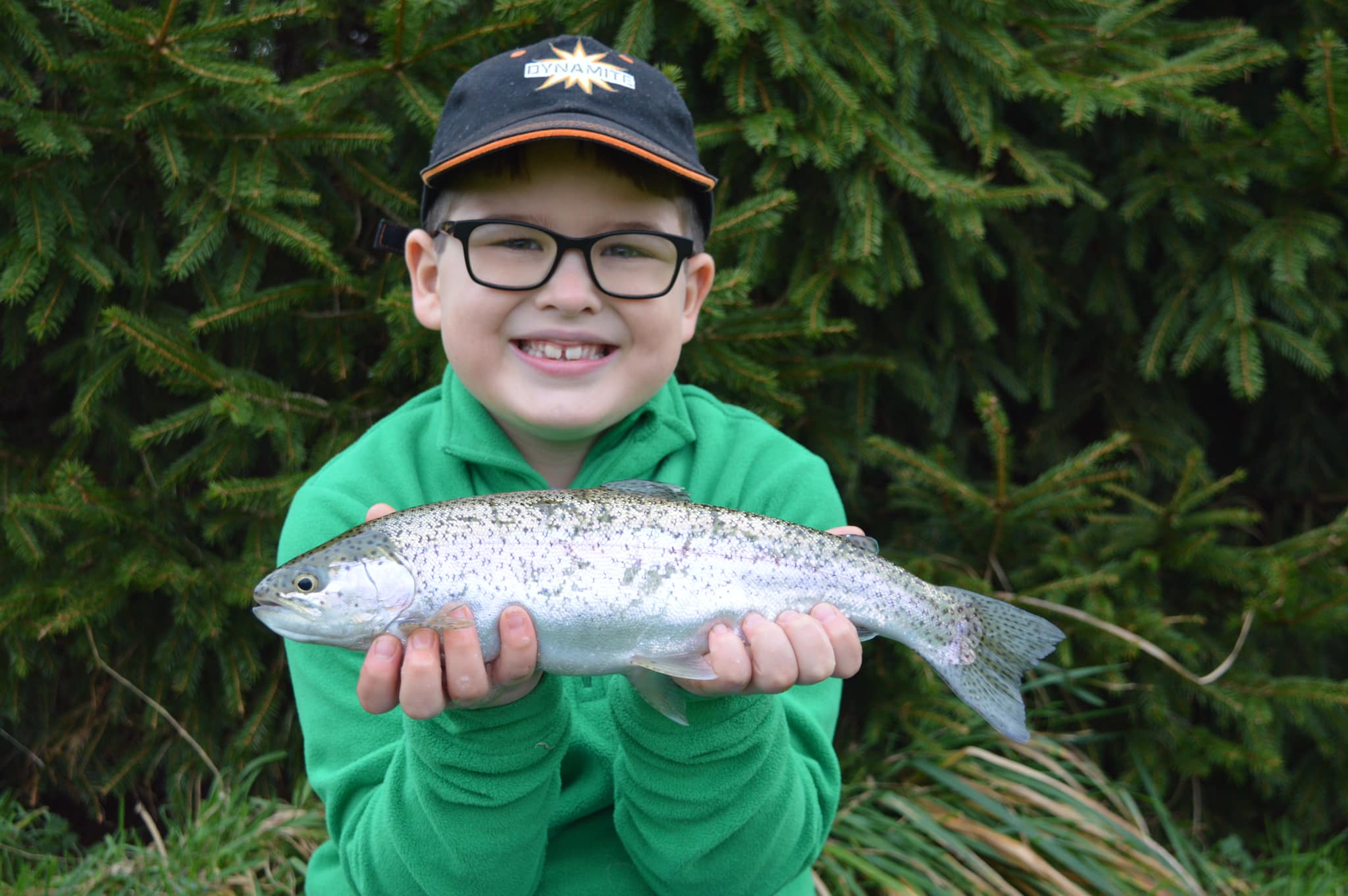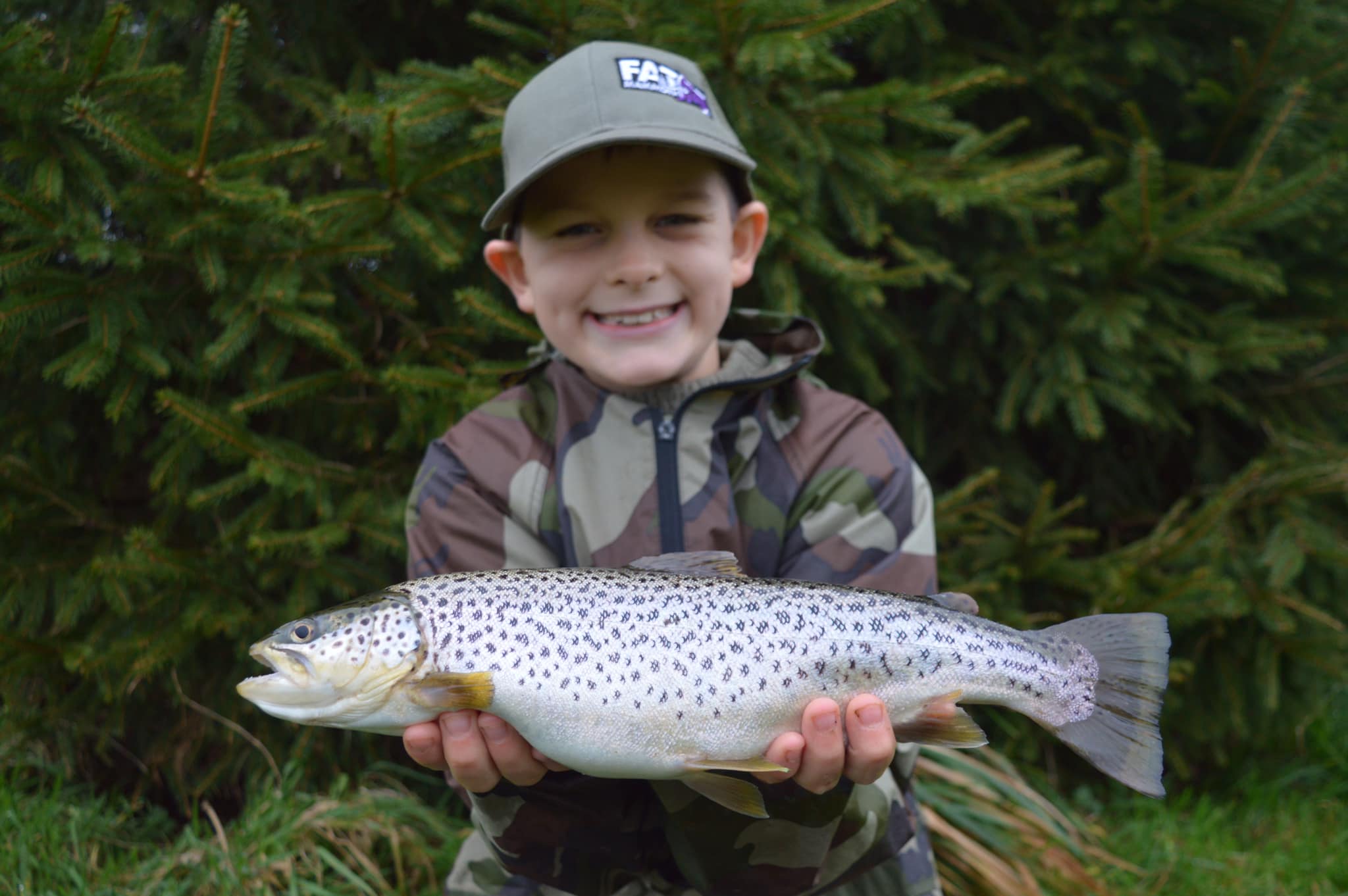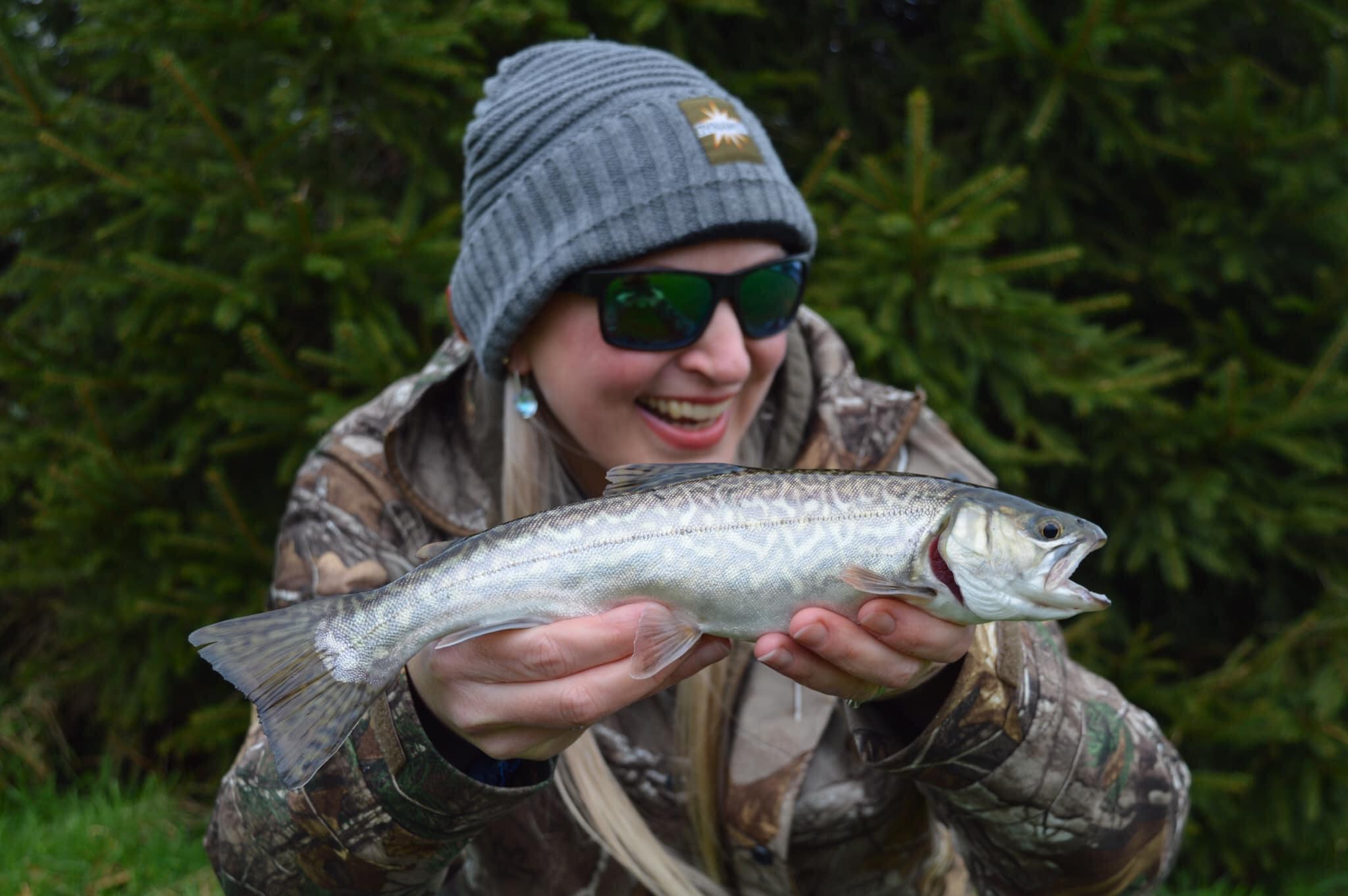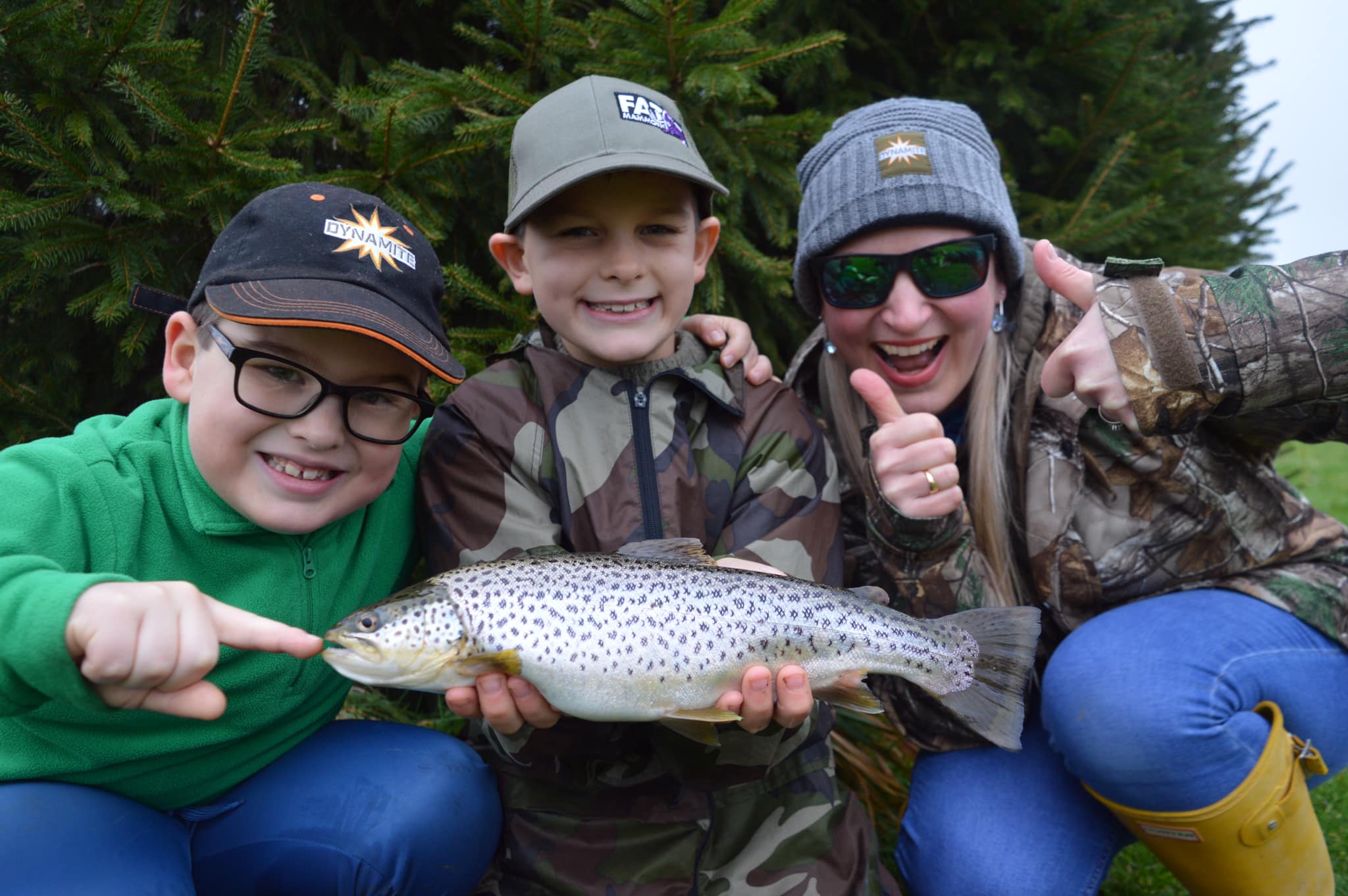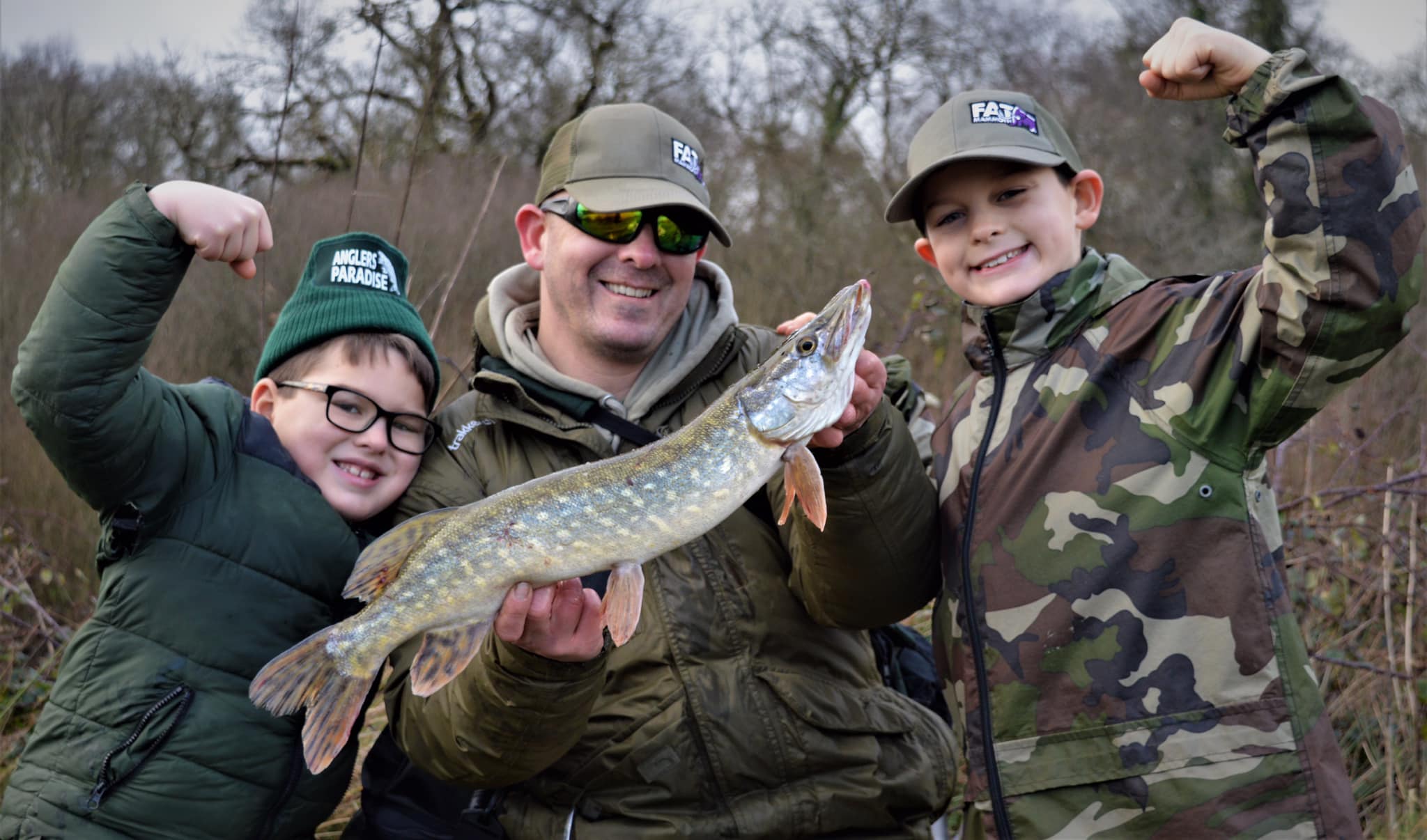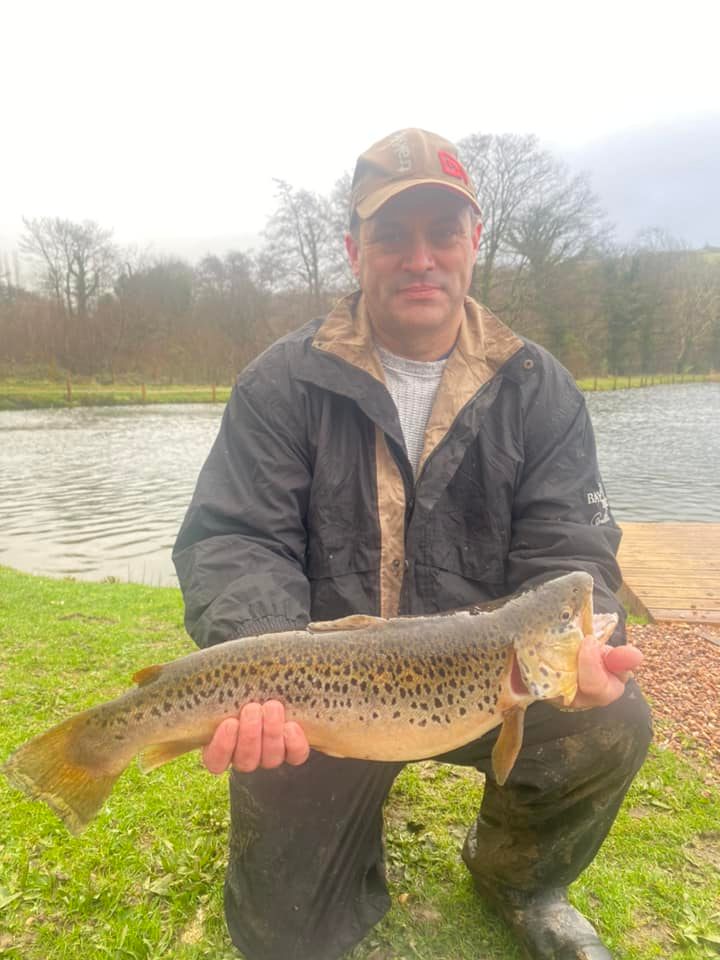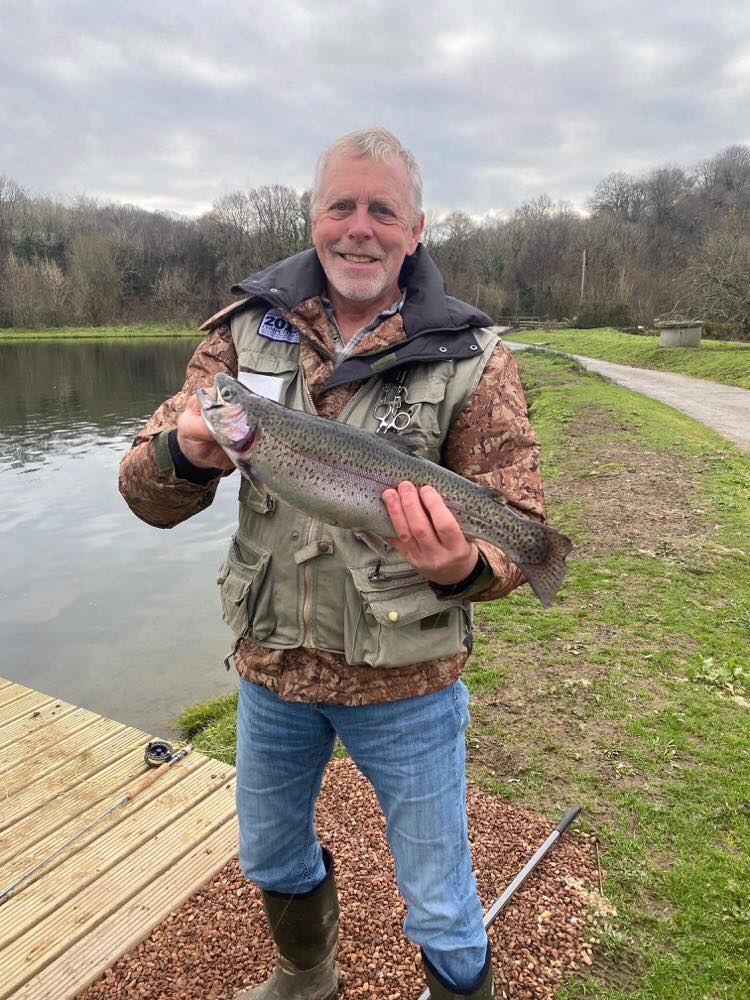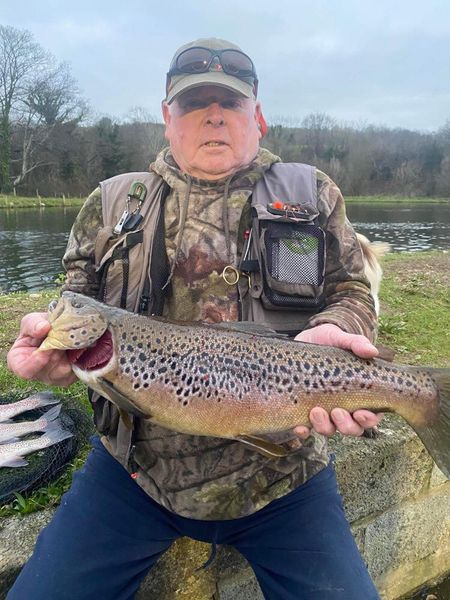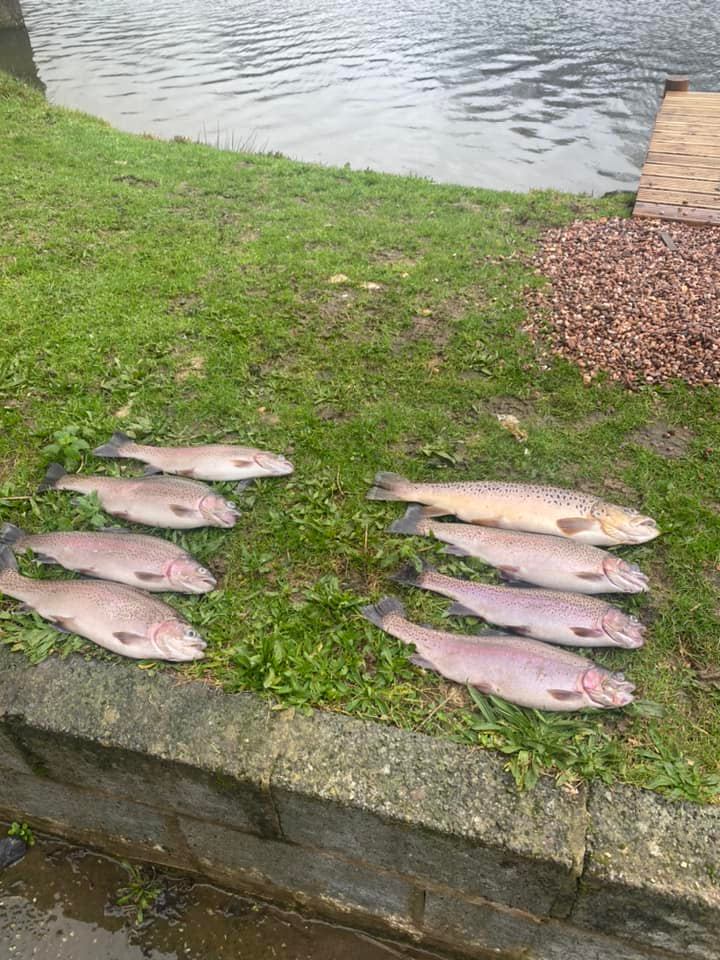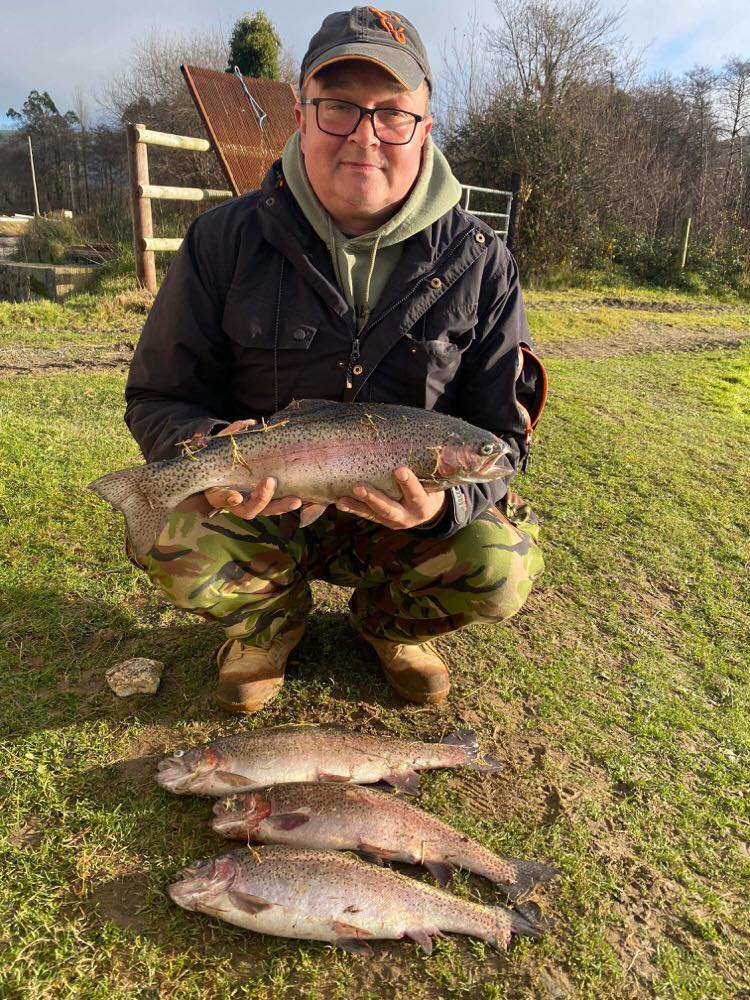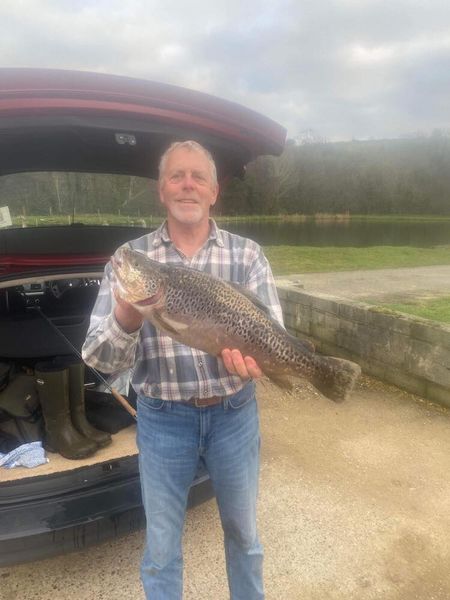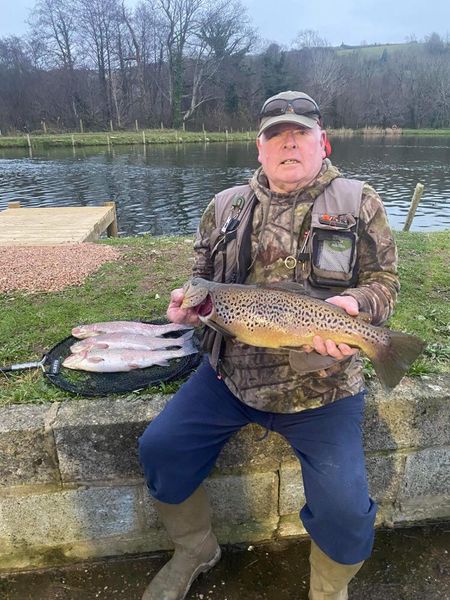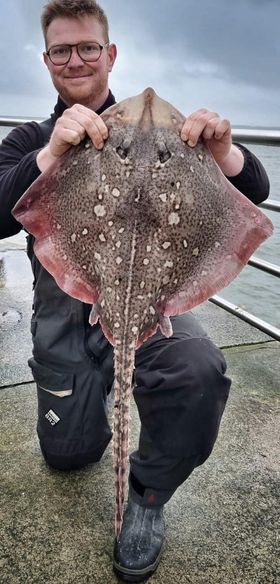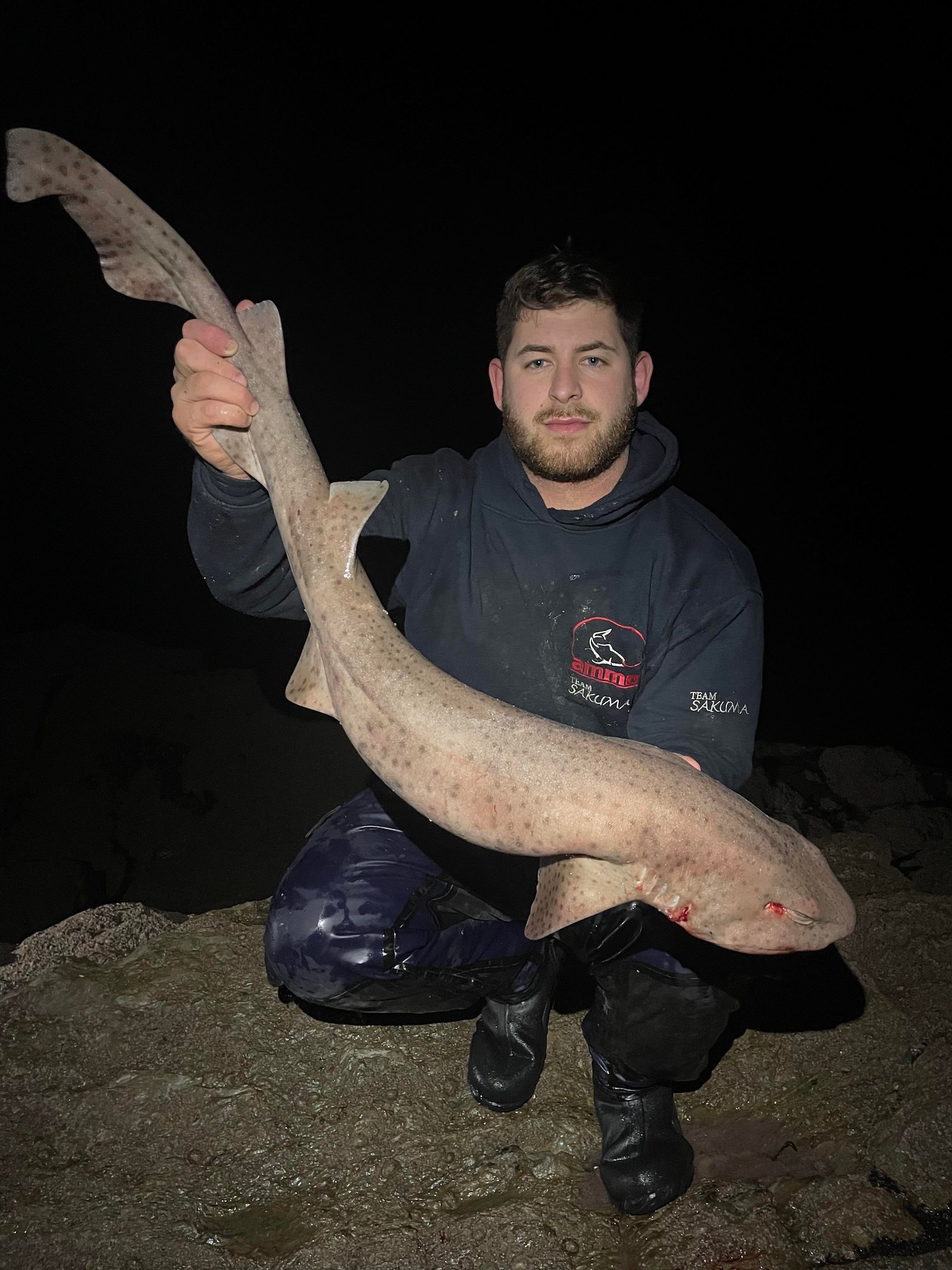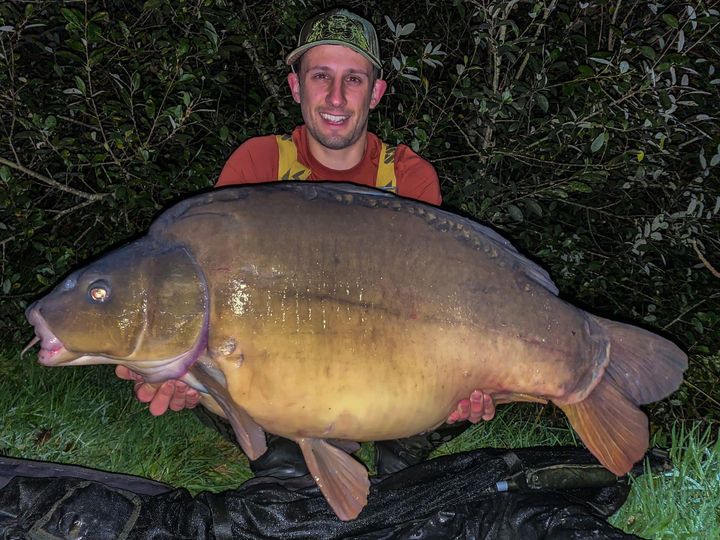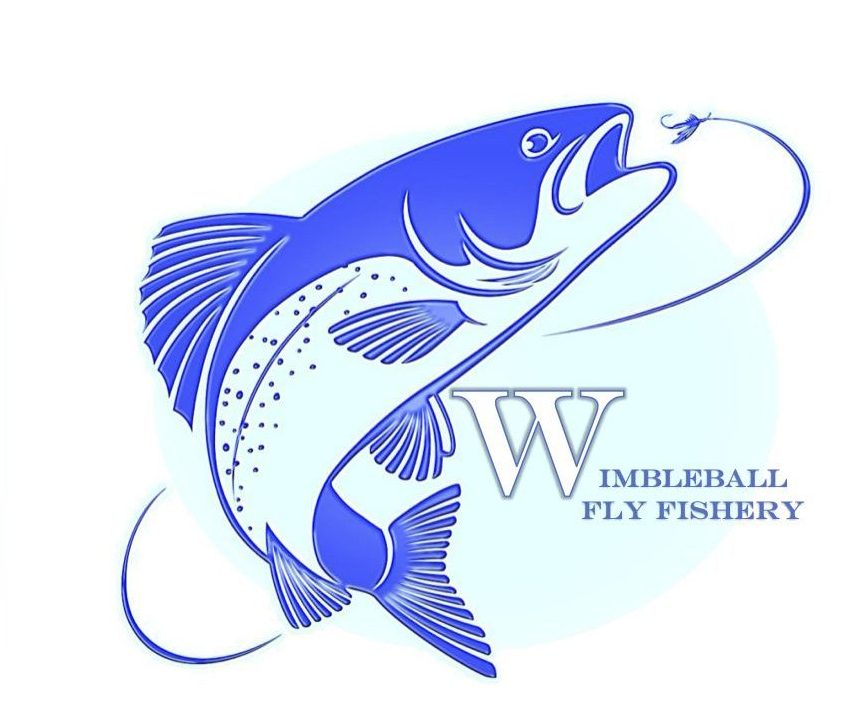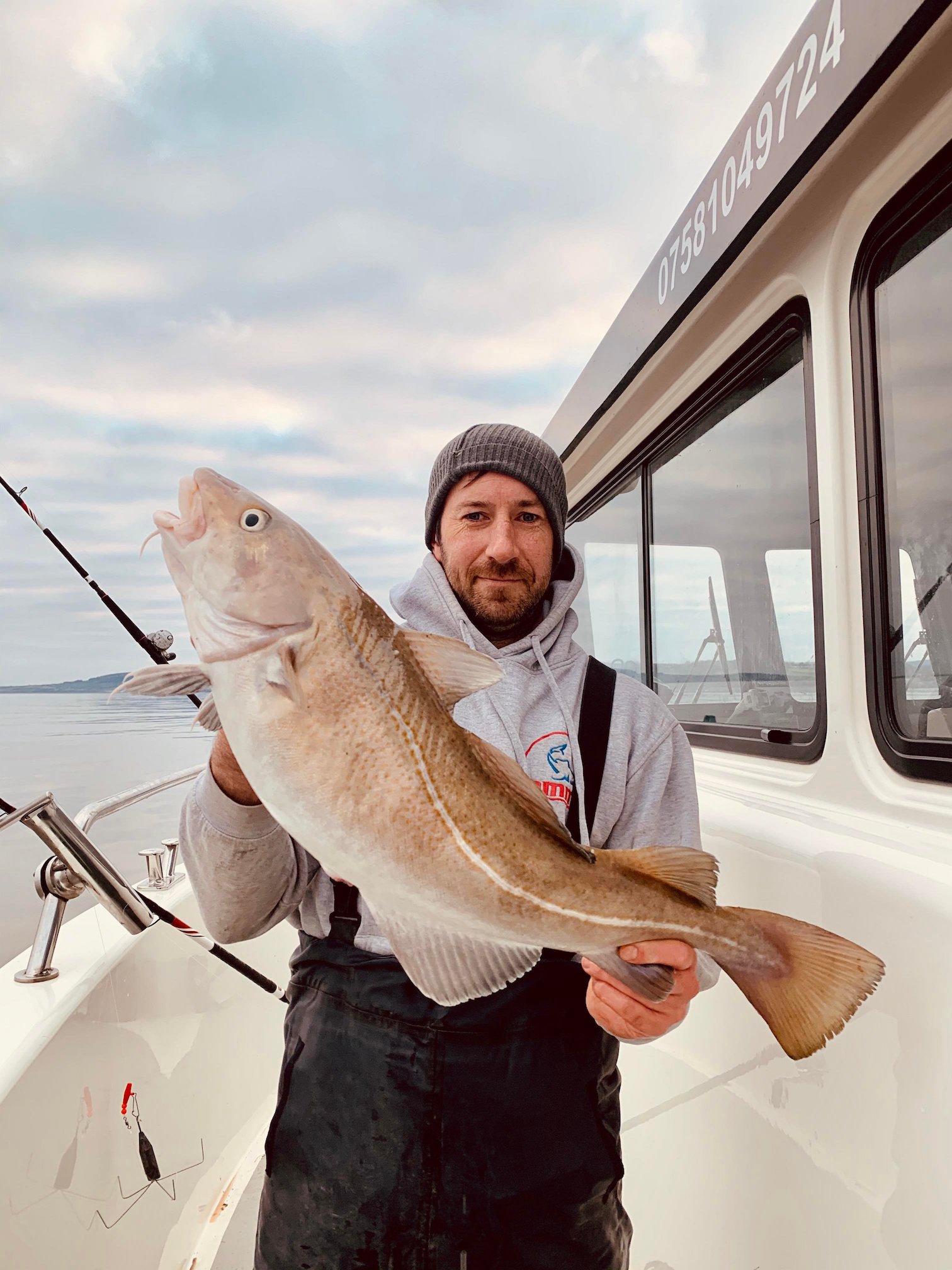Specimen small eyed worth a soaking
Combe Martin SAC member Mark Jones fished an up channel shore mark to land a fine small eyed ray of 10lb 4oz. The fish was landed during some horrendous weather making it difficult to get a good photo.! The fish was tempted on a blue and squid cocktail.
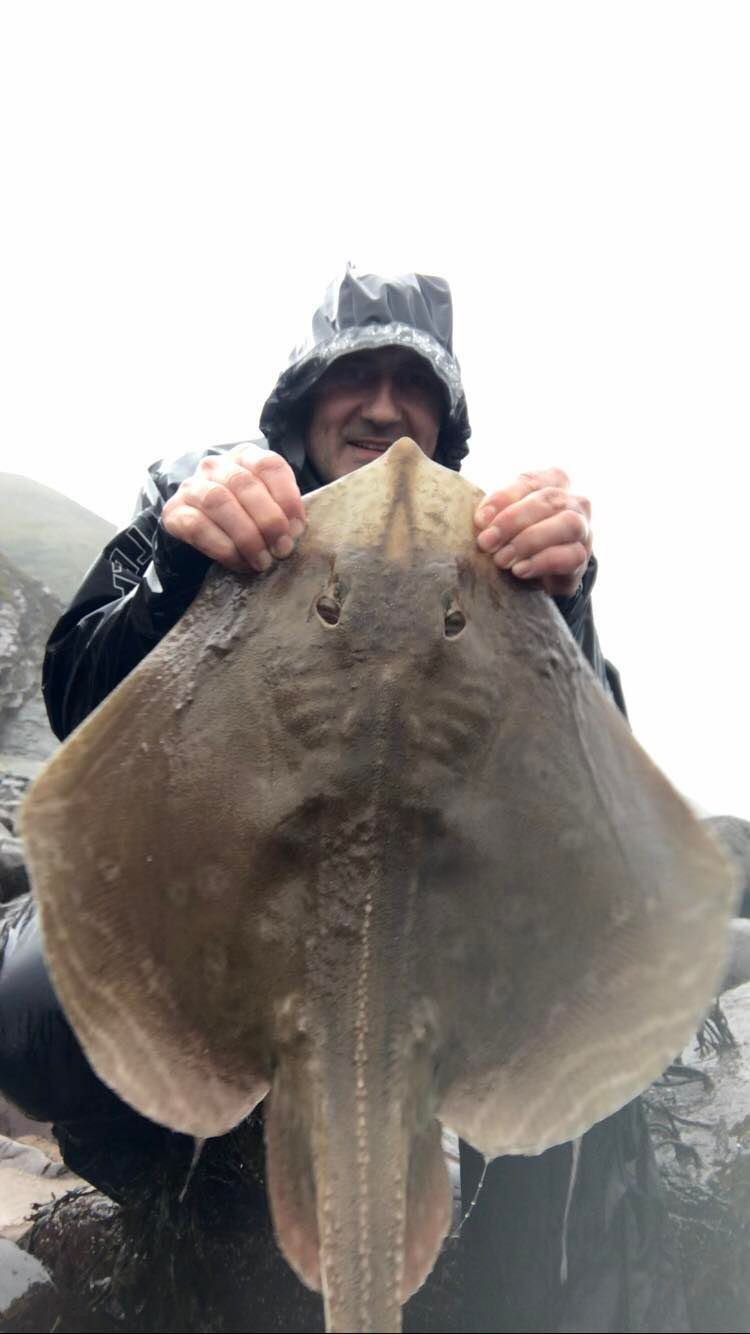
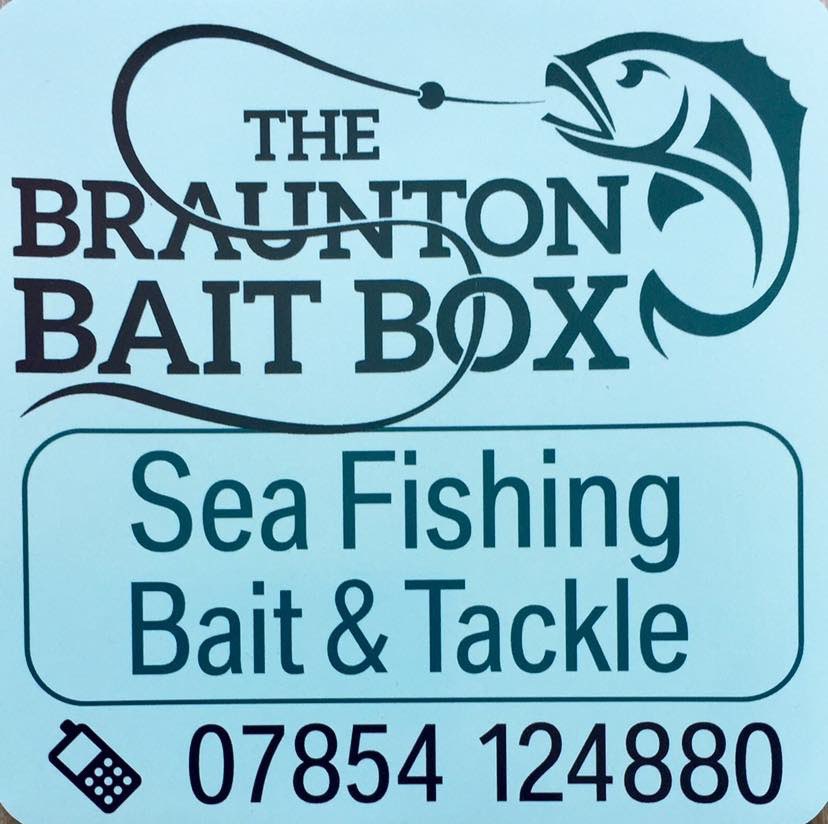
North Devon Match Group – Result
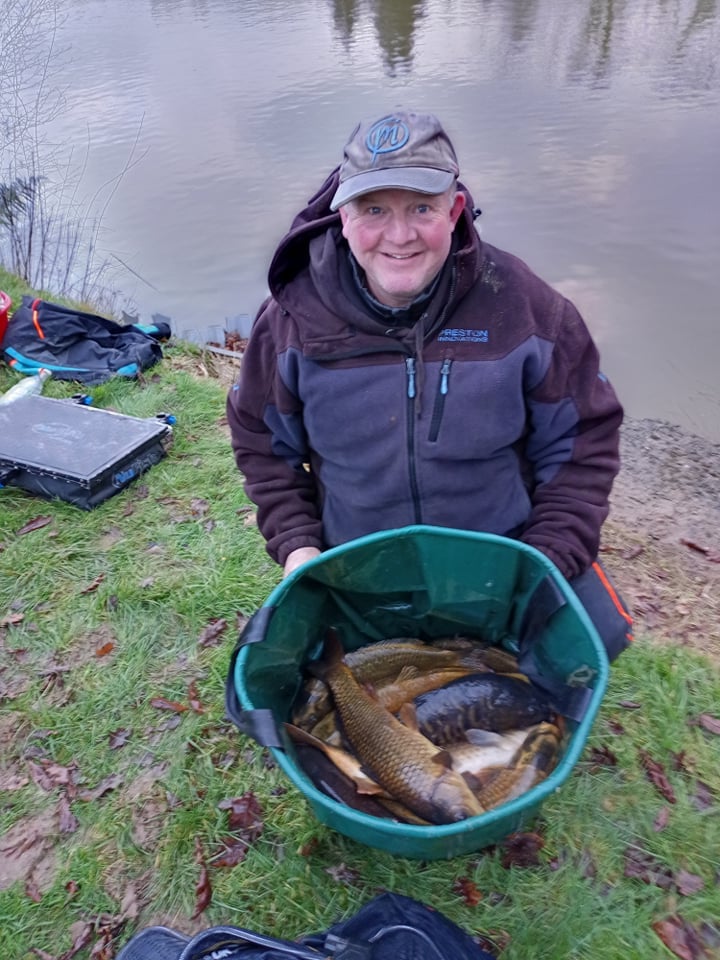
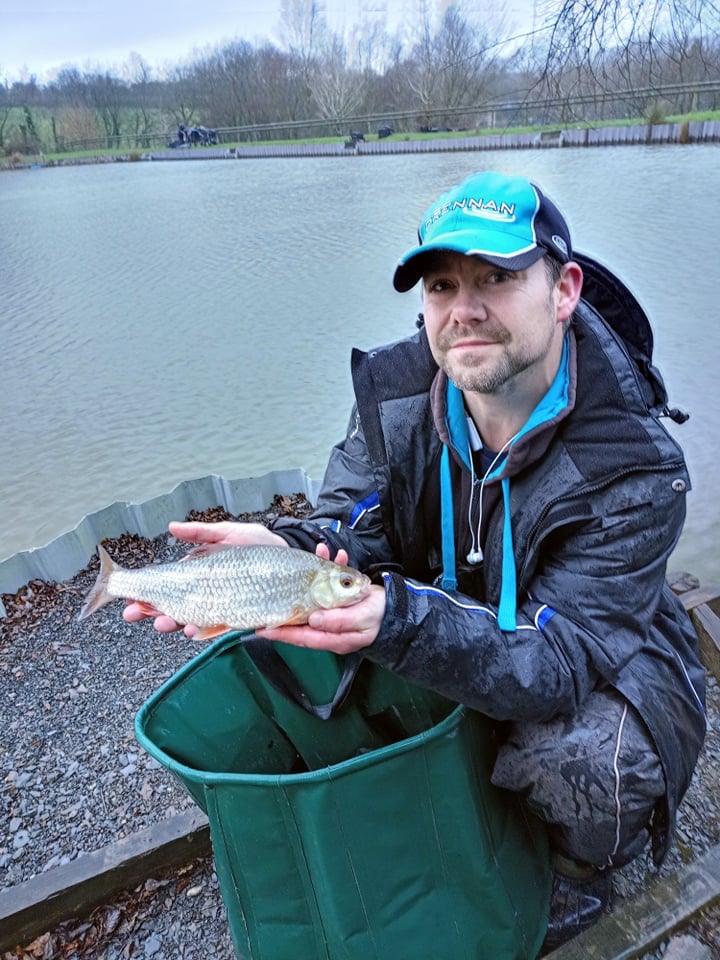
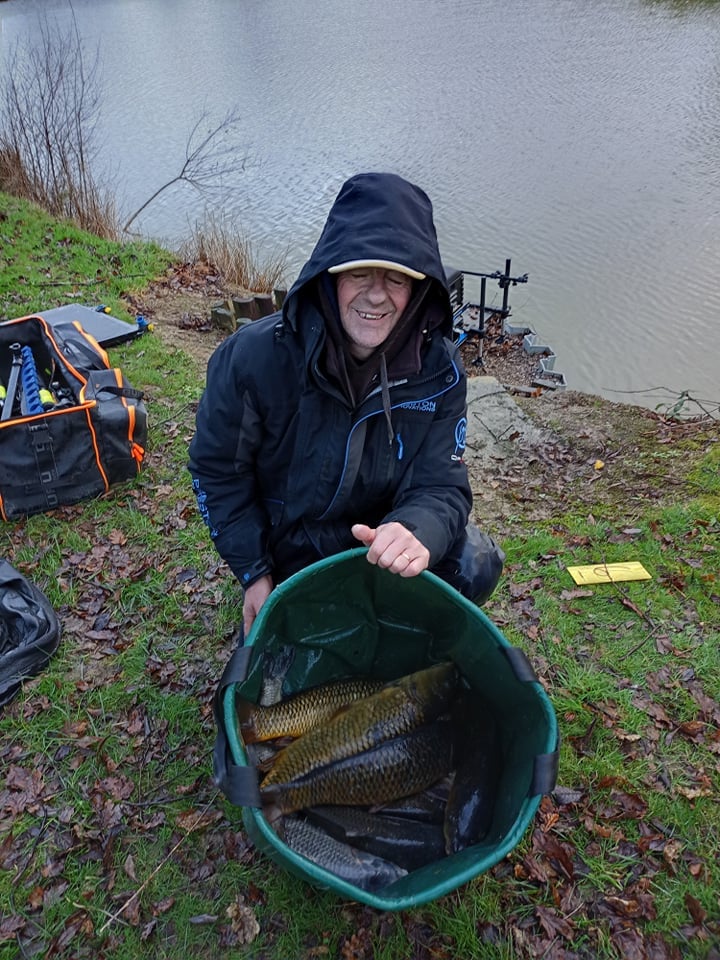
Angling Trust – Marine – Wyvern Region Open Shore Slapton, South Devon,
On the 2nd Jan 2022.
The South West’s first major event in 2022 attracted 111 anglers to the South Hams to fish the annual Angling Trust Wyvern Open Festival, with some competitors traveling from South Wales & the Isle of White, the weather conditions on the day saw a strong, west / south westerly wind with occasional heavy showers for the five hour event. Whiting, Dogfish, Pouting, flounder, dab, spotted ray & an excellent Small Eyed Ray were caught during the event, 64 competitors returned to the scales with fish to record. The results were announced within half an hour of the close of scales at the Festival Headquarters at the Stokeley Farm Shop.
The main sponsor was Julian Shambrook of Anyfish Anywhere Ltd, a major fishing tackle manufacturer, based in Torquay. All of the sponsors for the day were thanked for their continuing support each year, also a big thank you to Stokeley for their hospitality & providing an excellent venue.
The worthy winner, was the main sponsor Julian, Julian apart from being our sponsor for the event had fished it for over 30 years but had never won the competition before, he recorded a specimen Whiting of 1.775lb & a L.S.D. of 2.220lb (207.14%),he was presented with the top prize of £200 cash and the Brixham Bowl. The other tackle prizes were valued at over £800 and were awarded down to 12th place, these were announced by the Chairman of the Wyvern Region Alex Parker, and presented by Julian Shambrook.
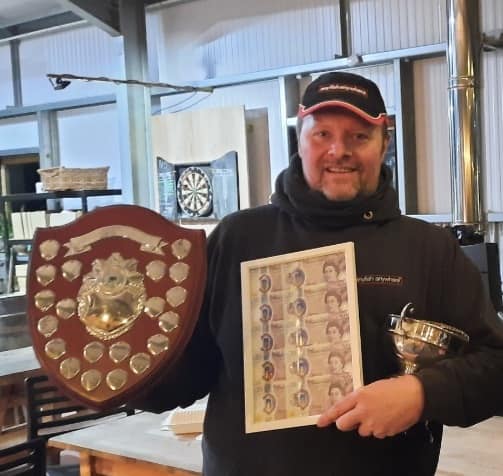
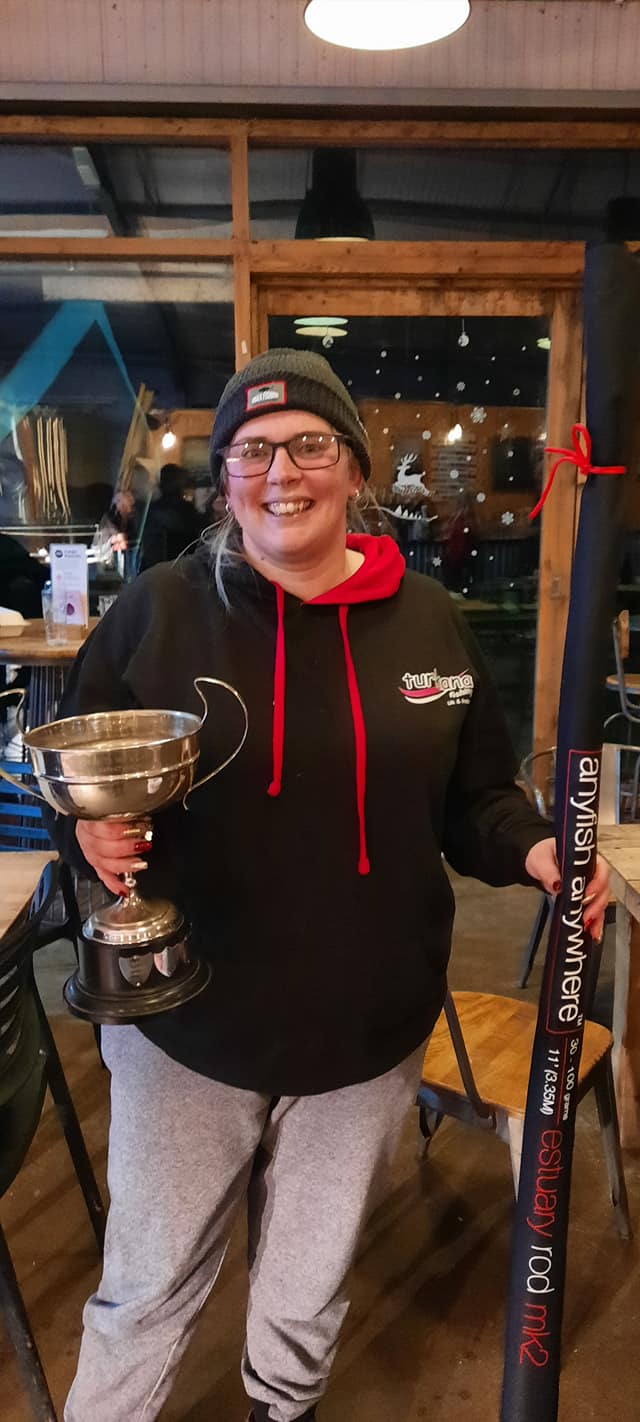

The Region promotes the Angling Trust “Take Five” anti litter campaign and encourages all anglers to leave the beaches cleaner than they found them.
The first Twelve Places are as follows:-
First : £200 Brixham Bowl
Julian Shambrook Torquay Whiting 1.775 lb
L.S.D. 2.220 lb Total: 207.14%
Second Pick of the Prize table & Bideford Cup Cup
Claire Loder Newport S E Ray 11.245 lb
Whiting 0.965 lb“ Total: 204.91%
Third Pick of the Prize table & Appledore Cup
Tony Honeywell L.S.D. 1.605 lb
Whiting 1.96 lb Total: 194.87%
Fourth Pick of the Prize table & Sidmouth Cup
Mike Rose 3 counties Whiting 1.37 lb
L.S.D. 2.415lb Total: 187.94 %
Fifth Pick of the Prize table
Ben Bradstock Honiton S.A.C. Whiting 1.68 lb
L.S.D. 1.85 lb Total: 186.00%
Sixth Pick of the Prize table
Paul Rohrabaugh Sidmouth S.A.C. Whiting 1.705 lb
L.S.D. 1.575lb Total: 176.67%
Seventh Pick of the Prize table
Dave Lane Weymouth AC Whiting 1.485 lb
L.S.D. 1.925lb Total: 176.00%
Eighth Pick of the Prize table
Marcus Ward T&B A.S.A Whiting 1.375 lb
L.S.D. 2.045lb Total: 173.47%
Ninth Pick of the Prize table
Dave Reed S.W.A.F.S.A.C Whiting 1.39 lb
L.S.D. 1.965 lb Total: 171.27%
Tenth Pick of the Prize table
Mark Barnett Kingsbridge S.A.C. Whiting 1.33 lb
L.S.D. 1.965lb Total: 167.27%
Eleventh Pick of the Prize table
Darren Newland Isle of White Whiting 1.505 lb
L.S.D. 1.67 lb Total: 167.14%
Twelfth Pick of the Prize table
Nick Snow Whiting 1.535 lb
L.S.D. 1.60 lb Total: 166.34%
Best Team Team Shield: ( Team of four anglers, Best fish by each angler)
Team: Anyfish Anywhere
Rob Marshall
Julian Shambrook
Marcus Ward
Ben Bradstock
Total 394.01%.
Pool (best individual species)
1/ 50% Claire Loder 140.57% Newport
2/ 30% Tony Honeywell 130.67%
3/ 20% Julian Shambrook 118.34% Torquay
Bulldog Trout Sport
Appledore Shipbuilders Result
Specimen spurdog, conger and huss in CMSAC Competition
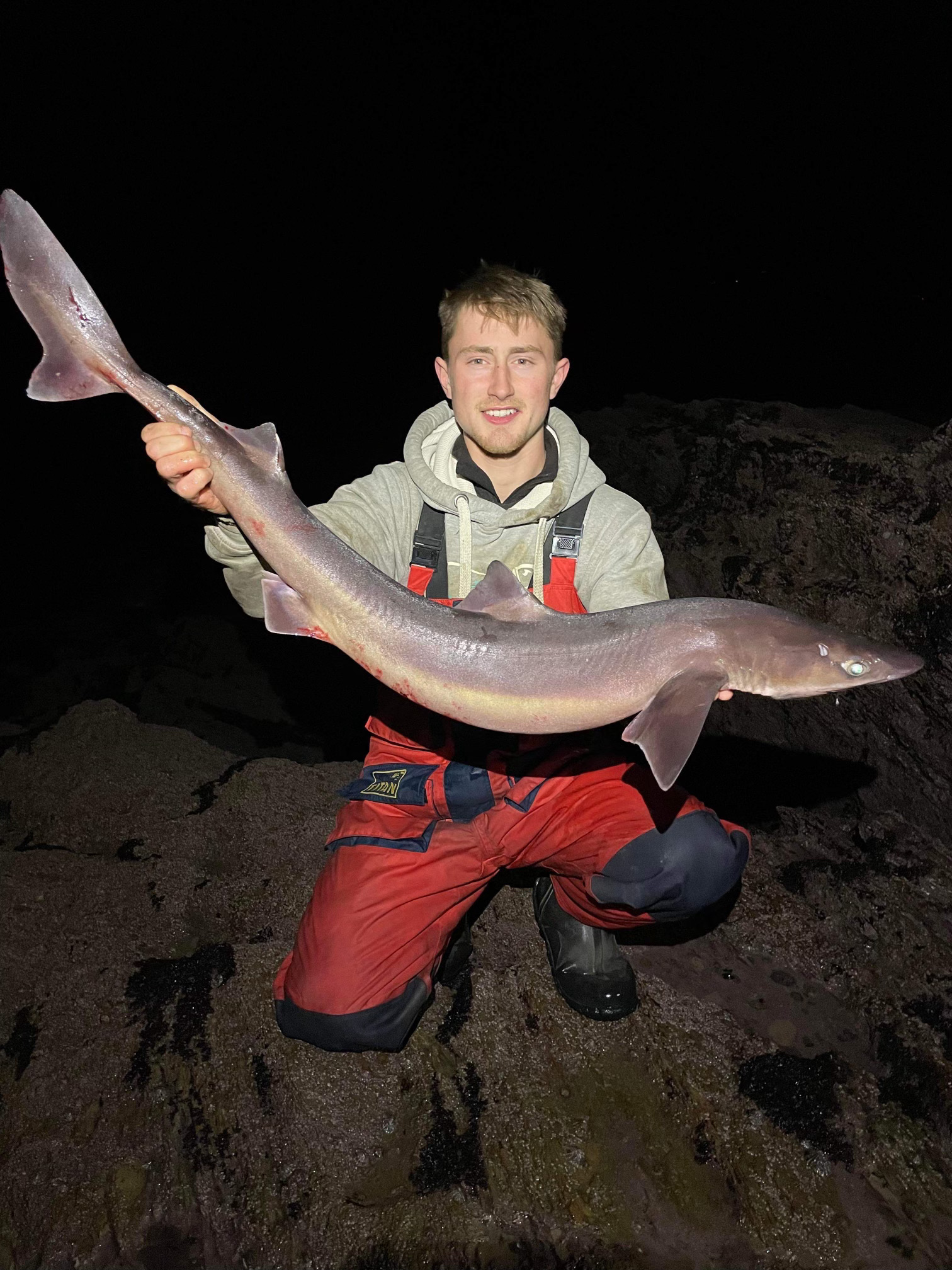
Aaron Brooker took the top two places Combe Martin SAC’s week long Blow Away the Excess competition. A fine specimen spurdog of 13lb 15oz taking first and a 23lb 11oz conger taking the runner up spot. Shane Pavio Hookway was third with a specimen bull buss of 11lb 3oz.
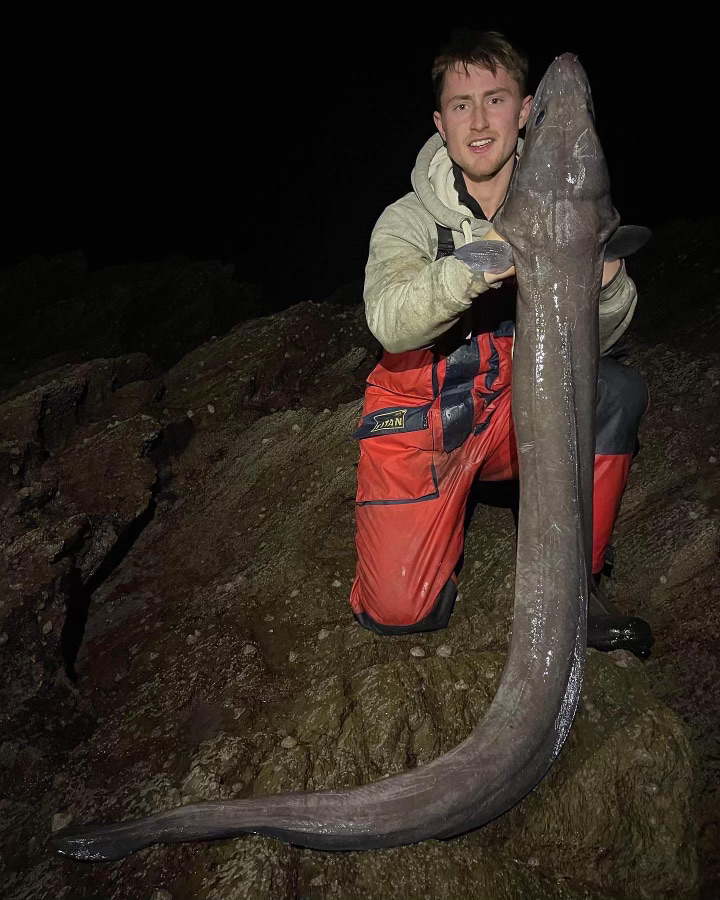
Shane Pavio Hookway – bull huss 11lb 3oz

Bull Huss haul

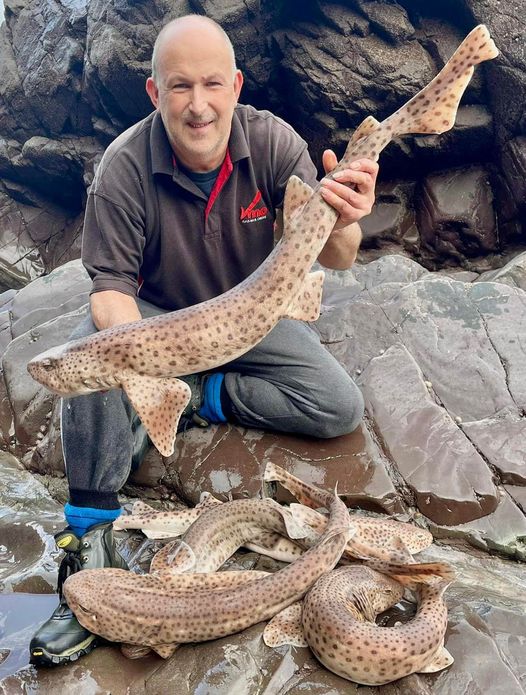
A TIME TO BOTH REFLECT AND LOOK TO THE FUTURE
 http://www.bluefincharters.co.uk
http://www.bluefincharters.co.uk
A New Year dawns and an old year passes a time that we all tend to both reflect and look to the future. Hopefully anglers will have managed to get to the water’s edge over the Christmas holiday and in the days that have followed. If all goes well I will be out boat fishing when this goes to print hoping for a cod in the murky waters off Minehead.
(Trip was cancelled due to strong winds and swell)

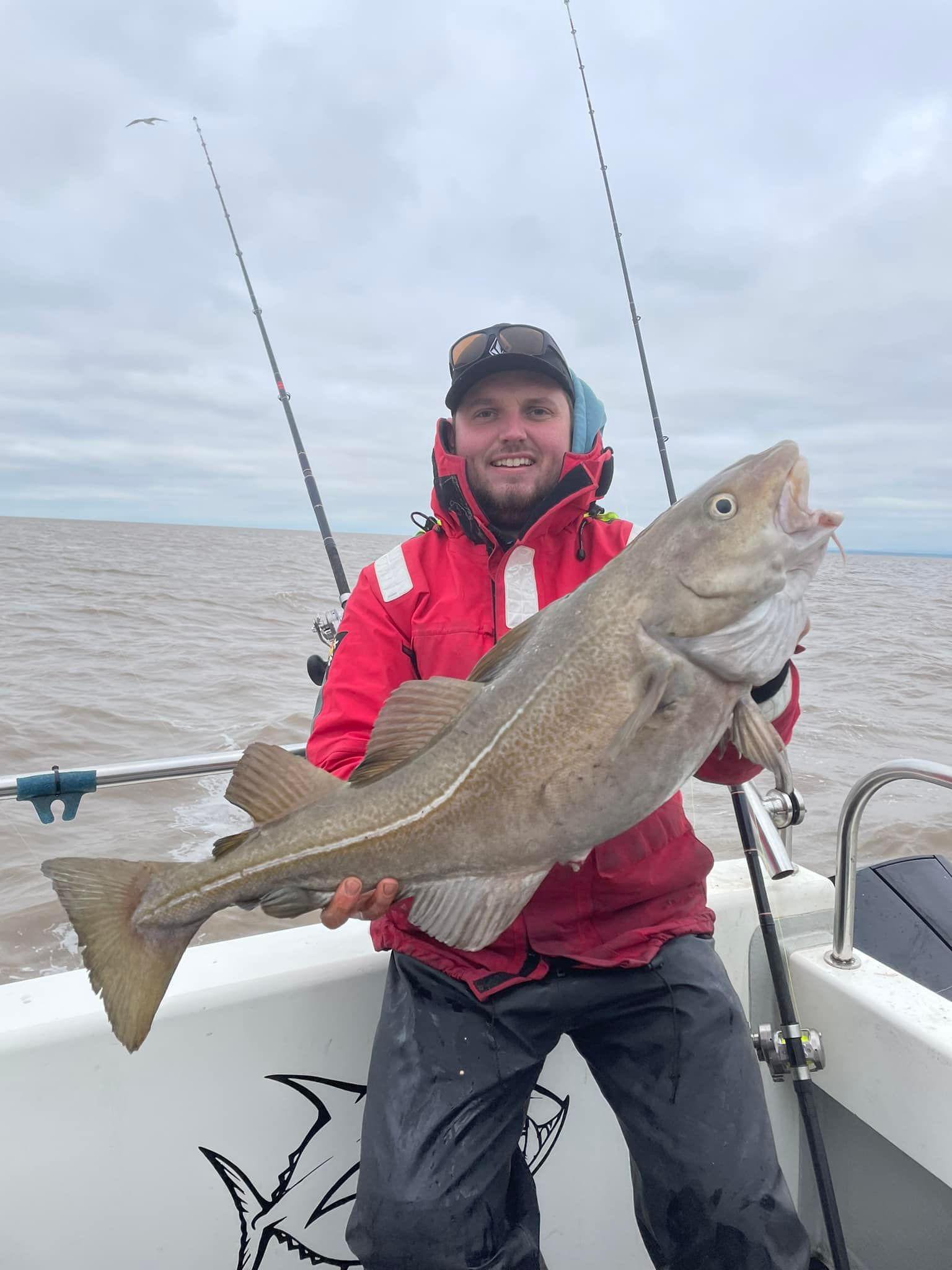
The winter cod season has been producing some excellent cod with fish to over twenty pounds boated already this season along with ray, huss and good sized conger. Archie Porter is taking anglers out from Ilfracombe on Reel Deals Sister boat “Predator 2”. Spurdog, conger and huss dominate catches in this part of the Bristol Channel with cod surprisingly scarce in recent seasons. The reason for this is open to speculation as there was a seemingly healthy cod population off the North Devon coast during the 1970s, 80’s and 90’s.
The dynamics of angling have certainly changed over the past twenty years or so as society changes. Boxing Day used to be a busy day in North Devon’s angling clubs fixture programme yet this tradition seems to have lost its popularity. I remember well when Bideford Angling Club always held a Boxing day fixture and Ilfracombe & District Angling Club held a match on Ilfracombe Pier. This decline in participation does not reflect a decline in the numbers going fishing for some disciplines of angling are in the healthiest state for many years. The COVID pandemic has perhaps encouraged many more to discover angling or rediscover its pleasures and benefits.
The angling clubs of North Devon have to some extent not seen the full benefit of this resurgence in angling participation as societies habits change. The ever changing workplace with many working throughout the seven day week has impacted upon weekend fixtures. Solitary angling such as carp fishing and sea angling is thriving whilst the social aspects are to some extent ebbing.

Commercial Fisheries such as Stafford Moor and Anglers Paradise offer superb fishing for a wide range of species. Match anglers fishing bespoke match venues can regularly put together nets of fish well in excess of 100lb. Such huge bags of fish would have been rare a couple of decades ago yet today it has become the expected normal.
Carp fishing has boomed in recent decades with North Devon waters reflecting the countrywide increase in carp weights. When I started writing this column over two decades ago a twenty pound carp would have been noteworthy. I now report on thirty pound plus carp most weeks with forty and fifty pound plus fish included. I have mixed feelings about this as I remember with nostalgia a time when carp were viewed as almost uncatchable mysterious creatures that drifted through lakes where they were seldom caught except by the dedicated specimen hunter. In today’s carp angling World the long stay angler dominates bivvied up beside lake’s traps set waiting to hook carp that have been given names. The mystery has to a large extent been lost, a reflection that perhaps mirrors the wider world where the knowledge we gain in life sometimes subtracts from its richness.
Whilst the artificially created angling world booms the wild salmon and sea trout that once surged into our rivers have declined at an alarming rate. If the salmon and sea trout numbers continue to decline at the same rate since I started fishing for them back in the early eighties they could be all but extinct within fifty years. This is a sad indictment of how mankind has squandered the wealth of the natural world. The reasons for the decline in wild fish populations is complex though overfishing, climate change and pollution are all contributory factors driven by an ever increasing population that demands evermore from natures dwindling store cupboard.
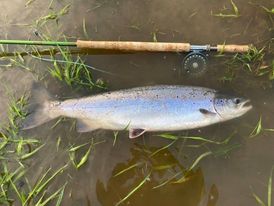
I took my fly rod the Wimbleball Reservoir a couple of days before Christmas and experienced exciting fishing for the rainbow trout that have been stocked in this extensive reservoir high on Exmoor. This reservoir completed in 1979 is a fine example of how mankind can create a rich and diverse almost natural environment. The trout within this lake are hard fighting and fin perfect. Standing waist deep in the clear cold water looking out over a vast sheet of water as the light constantly changes it felt refreshingly wild.
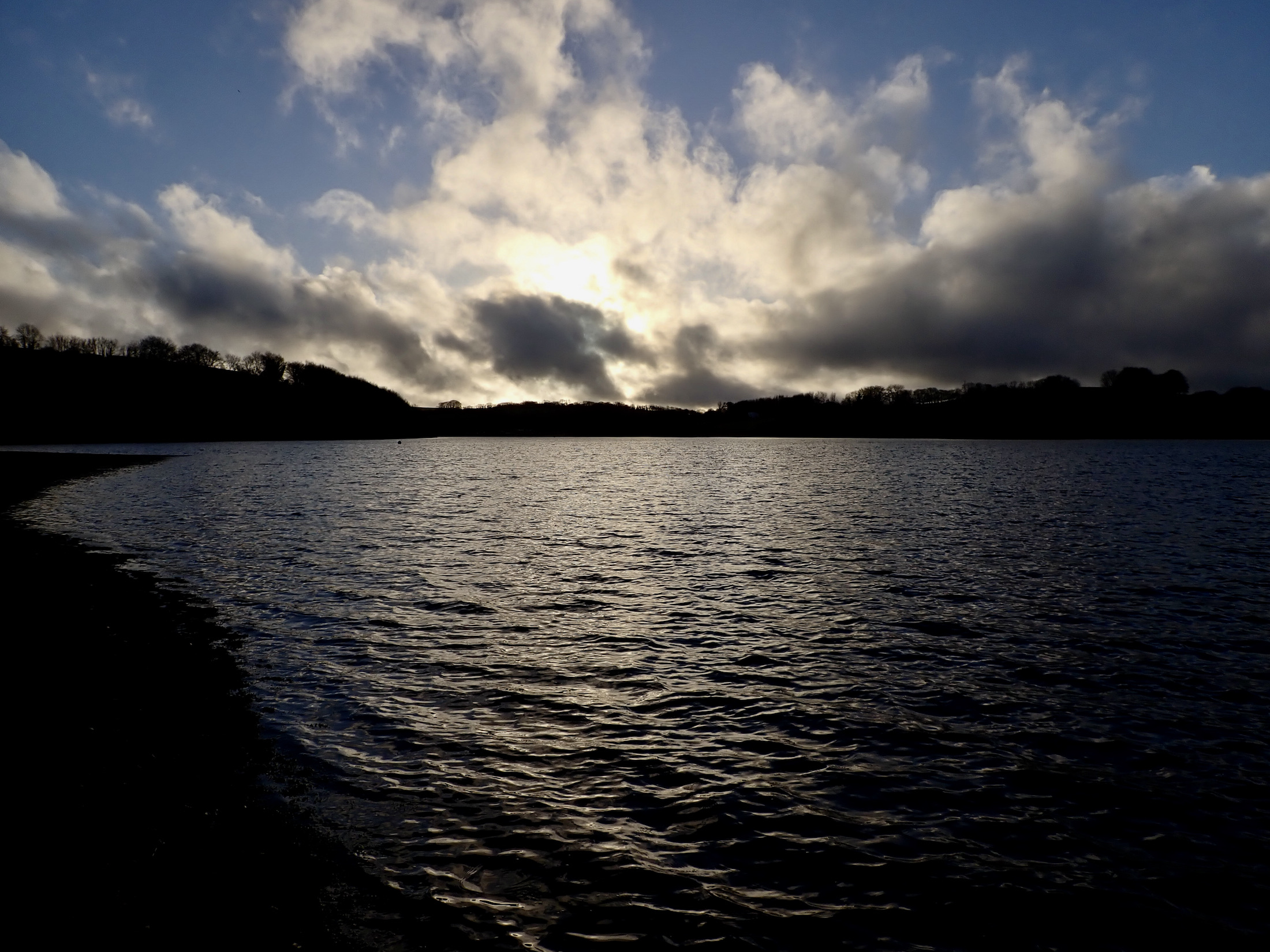
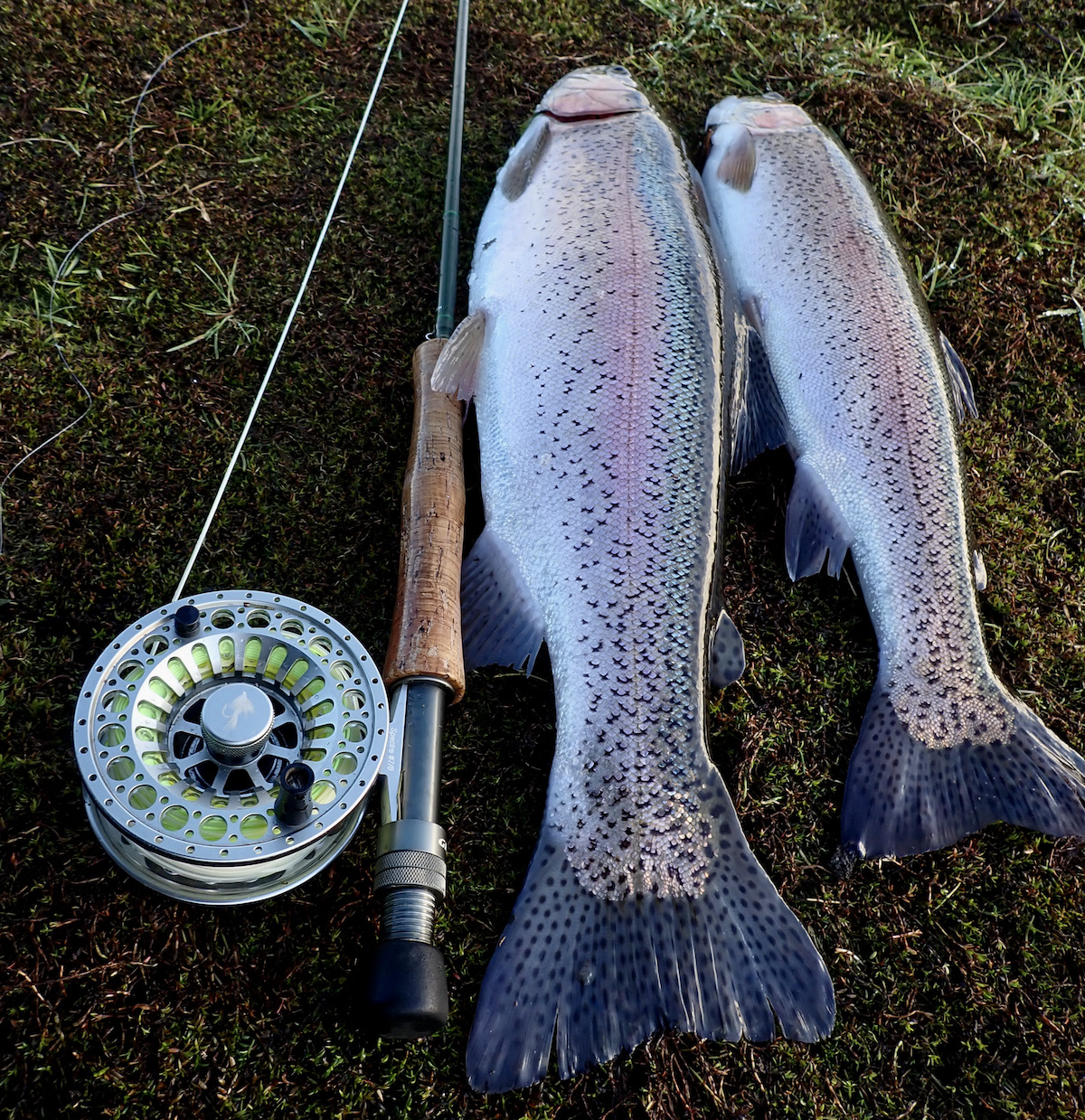
I look forward to reporting on North Devon’s angling news in 2022 and would like to wish readers tight lines for 2022. Special thanks to all the sponsors of North Devon Angling News.


